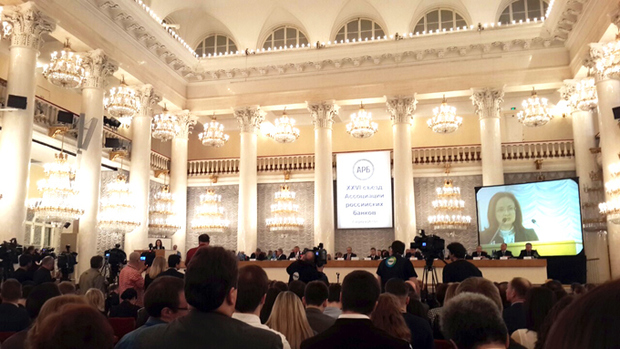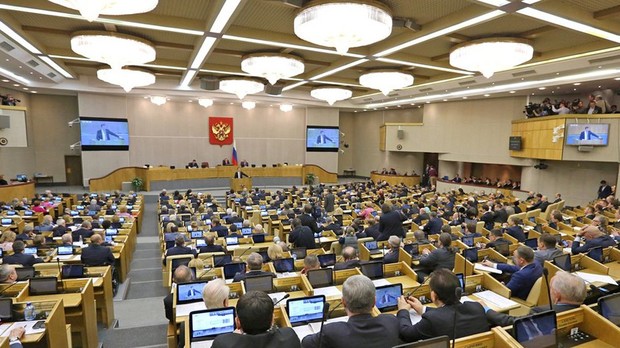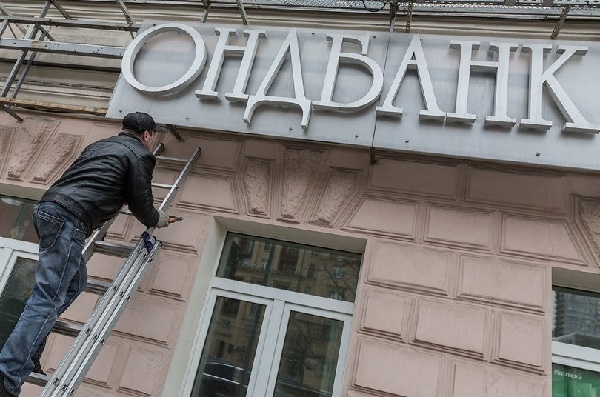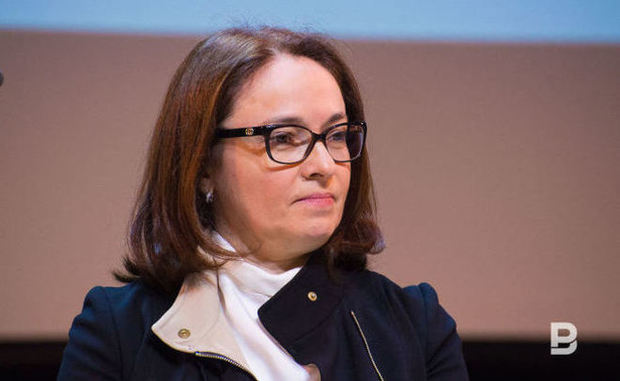Petr Aven bangs the doors: bankers quarrel because of criticism of Elvira Nabiullina
S&P Global Ratings questioned the necessity to revoke Tatfondbank’s licence
The 2017 Congress of The Association of Russian Banks was to take place in the House of the Unions' Pillar Hall on 28 March. The congress hardly began and was marked by a grandiose scandal – one of its oldest members Alfa Bank stopped its membership in the Association of Russian Banks. The bank doesn't agree with the text of the association's annual report for 2017. Indeed, the document was scandalous. This is why Alfa Bank's reaction is not surprising. Realnoe Vremya tells the details.
''We consider the making the report public on behalf of all members inacceptable''
A grandiose scandal broke out in the charm banking family, that is to say, in the Association of Russian Banks. One of the leading banks of the country – Alfa Bank – spread a press release where it severely criticised the administration of the Association of Russian Banks and announced its cessation of its membership in this respected association.
The annual report by the 2017 Congress of the Association of Russian Banks, which was going to be held in the House of the Unions' Pillar Hall on 27 March, became the bone of contention. Alfa Bank expressed its disagreement with the conclusions and estimations of the annual report.
''The style of the report including accusations of the Central Bank of Russia of cynicism, favouritism, work in a ''military operation'' mode, deliberate reduction of the number of banks, use of Jesuit formulations, disruption of the stability of the banking system as well as competition stifling contradict the spirit of constructive interaction and cooperation that existed between the regulating body in the person of the Bank of Russia and healthy part of the national banking system.''

The annual report by the 2017 Congress of the Association of Russian Banks, which was going to be held in the House of the Unions' Pillar Hall on 27 March, became the bone of contention. Photo: osgrm.ru
When is inflation targeting a supergoal?
So what did the authors of the report write that cringed such an authoritative and oldest market player as Alfa Bank? Here you are:
''It seems that inflation targeting became a superidea for the Central Bank of Russia for sake of which we are able to sacrifice not only the very banking system but the entire economy of the country. The Russian megaregulator, on the contrary, gives to understand the targeted inflation level is an absolute supergoal on the way to which the growth of GDP, employment, citizens' level of life become a secondary priority for the Bank of Russia.''
Here is another part:
Isolation of banks from state funds assume quite strange (if not cynic) forms and loses any logic.''
''But how are tax guarantees and capital increase or being sanctioned linked with each other?''
''Why is the bank with a capital of 10 billion rubles worse if it did not ask for state support because it did not suffer from the deficit of capital adequacy? What is it if not favouritism? Why can banks' access be restricted judging by the size of their capital?''
''Nowadays the issue on a legal creation of a multi-level banking system is under discussion.''
It may seem the goal should be formulated in the Article 1 of the bill.
If the structure of the banking system of the country, which has not changed for 27 years, changes, it is unlikely to doubt their importance to not only the banking system but the economy in general. For this reason, it would be quite reasonable to work on its content.
However, it was adopted in the first hearing on 22 February evening in such a hurry as if they had meant the beginning of a world war.''
''Reading the text formulated à la Jesuit carefully, one can see formally the bar of requirements for banks' capital doesn't increase and remains at 300 million rubles.
In fact, these banks (regions have a big number of such banks) will be isolated from more qualitative resources and clients who have been working with them for over 20 years. In many cases, they managed to survive thanks to them.
It is difficult to find the declared promises to simplify regulation in the bill. This is why they remain unclear for market players. Even now considerable part of banks especially regional are gradually losing the clientele due to uncertain and negative expectations.''

''As a result of licence revocation, confidence in the system, every bank and the Central Bank as major regulator and supervisory body is lost''
''Definition of the size of capital as major criteria of banks' access to clients' money proves a substitution of the concept of financial stability: only one quantitative indicator – capital's size – is estimated instead of qualitative characteristics of a bank's work.
''Nevertheless, the majority of market players note a beautifully veiled favouritism of some banks.
It, in turn, leads to a loss of confidence in other market players.
Seeing the growing requirements for banks' capital, many companies also refuse cooperation with the banks that doesn't have access to state money.
Region and big cities' governments recommend even private companies to cooperate only with a limited circle of banks ''just in case''. Many big, even medium-sized organisations and wealthy citizens conclude that it is necessary to hold big monetary funds abroad and obviously not in the Russian currency due to the lasting licence revocation and worsening competition.''
''As a result of licence revocation, confidence in the system, every bank and the Central Bank as major regulator and supervisory body is lost.
It is no surprise the society asks: ''What is the responsibility of a state that obliges market players to do calculations only with licencing organisations that the Bank of Russia daily supervises since their birthday?''
''Revocation of bank licences is expensive for the economy of Russia. This is why it would be sensible to switch to alternative recovery ways of banking institutions.
Real stress for the economy of a region, country and thousands of clients is behind every licence revocation.
In the end, a non-material damage in the form of erosion of confidence in financial institutions, state policy are more important than direct loss of money.
For this reason, from a perspective of strategic national interests, the ''hunt'' for licence revocation under any circumstances is unfeasible. A top-down change of working strategy, change of management, rehabilitation/sale of a bank to interested investors are alternatives to a problematic bank's licence revocation. They are difficult measures. But they are needed to make the financial system of Russia not only stable but credible. For instance, Italy has banks that have over 200 years. In the 19 th-21st centuries, many of them went through an obligatory change of owners and administration, rehabilitation, consolidations and other procedures initiated by financial authorities. At the same time, they conserved their licence and continued working with clients.''

Too hasty decision on Tatfondbank
All of a sudden, the Association of Russian Banks found like-minded people – worldwide known S&P Global Ratings, which doubted the necessity to revoke the licence of Tatafondbank – the second biggest banking institution of Tatarstan. It comes from Rehabilitation Process of Problematic Russian Banks Can Be Insufficiently Transparent with New Regulation analytical report as from 27 March.
''First of all, we think the criterion used by the Bank of Russia while making a decision on the financial rehabilitation or licence revocation of problematic financial institutions has not been transparent enough. We are not sure the problem will be solved after the imposition of a new rehabilitation mechanism. A recent example: The Bank of Russia's decision to revoke Tatfondbank's licence was made despite a big, in our opinion, importance of this financial organisation for the banking sector of the Republic of Tatarstan,'' according to the report.
S&P Global Ratings notes the share of the banking institution among juridical persons in the regions accounted for 13% as from 1 December 2016, a bit before the appearance of a transitional administration.
As it is said in the report, Tatfondbank's share is bigger than corresponding shares of several regional banks, particularly VUZ Bank, Avtovazbank, Baltysky Bank, Sotsinvestbank and Tavrichesky banks, which had been provided with help within the scope of financial rehabilitation.
The rating agency also says Tatfondbank's rehabilitation would require 100-200 billion rubles, and Deposit Insurance Agency granted loans of a comparable or bigger size within the financial rehabilitation of Bank of Moscow (294,8 billion rubles) and Mosoblbank (168,7 billion rubles).

Alfa Bank for Nabiullina
Do you feel the intensity of criticism? It is a sheer scandal! It is no surprise that careful Alfa Bank decided to distance from so radical association. Emotions are emotions, but businesspeople in the West say ''Money loves silence. Big Money loves grave silence'':
''The bank (Editor's Note: Alfa Bank) supports the regulator's effort to clean the banking system. To provide a competitive environment, it is important to not to allow unreasonable differences while regulating private financial intermediaries and publicly owned organisations.
Alfa Bank considers the offers of the Central Bank of Russia on proportional regulation of banking institutions reasonable. We are talking about the implementation of international approaches that apply Basel standards to big banks working in the international market and reduction and regulatory pressure on small banking institutions. The real task is to specify final legal formulations and consider real commercial interests of all bank groups. It is necessary to do it in a calm and weighed dialogue without loud mottos, accusations and labels. This way, the Russian banking system must prove its maturity and readiness for changes.''